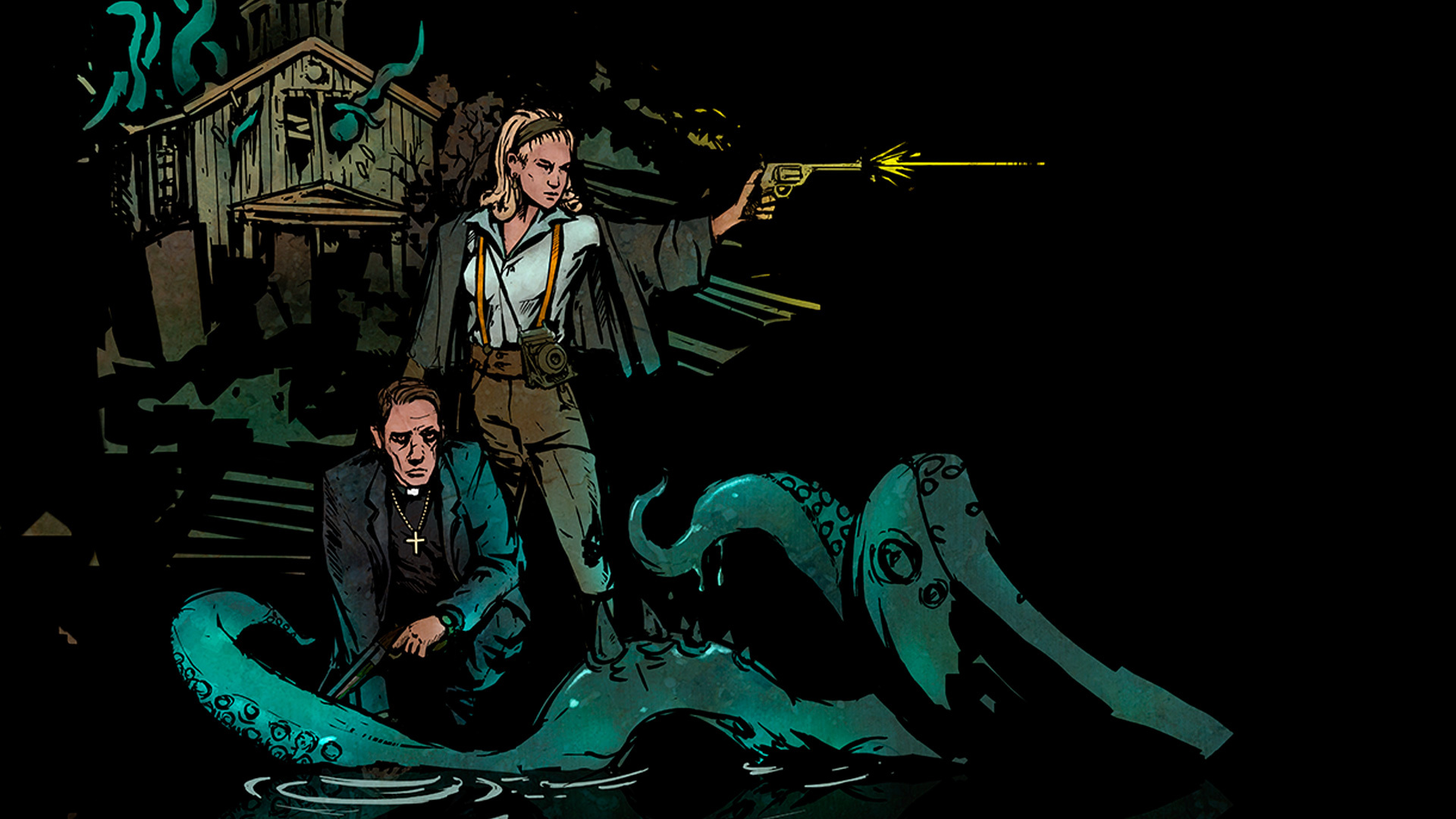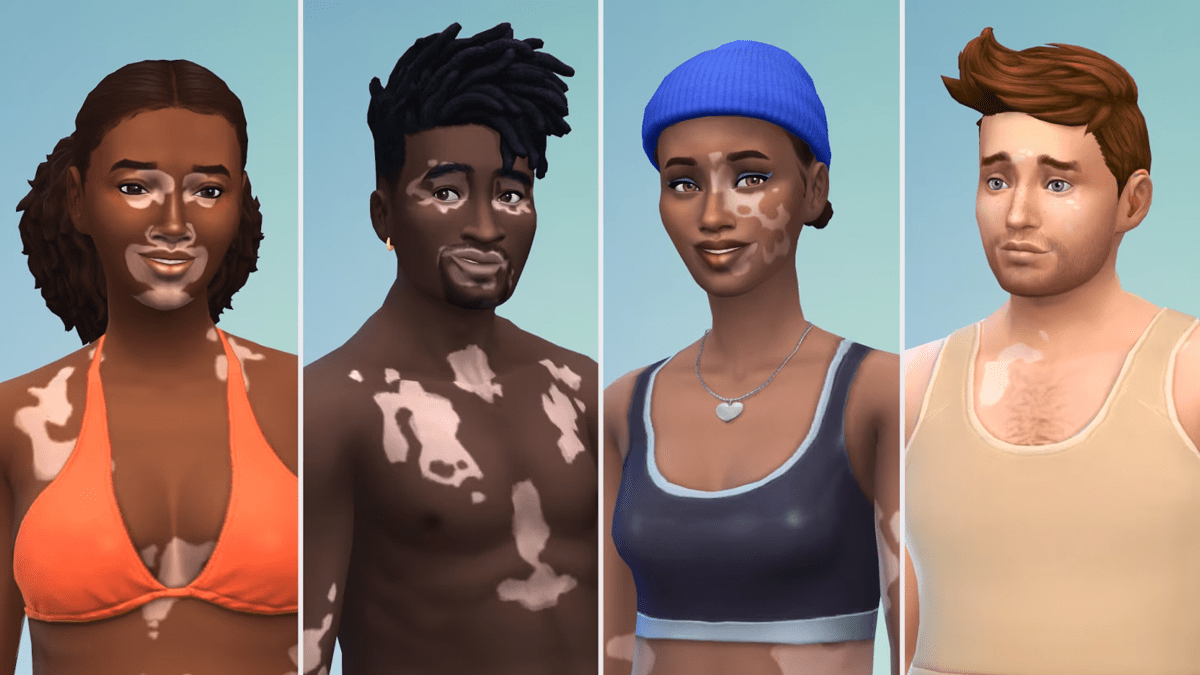Forgive Me Father is a hyper-stylized first-person shooter characterized by a comic book style and inspired by the works of H.P. Lovecraft. In terms of mechanics, Forgive me Father’s most apparent inspirations are the first two entries of the Doom franchise, right down to scouring each map for color-coded keys. What little narrative is presented here states that a protagonist whose status as either a reporter or priest is determined by the player, arrives in the fictional New England town of Pestisville after receiving a distressing letter from their cousin Louis, only to find that residents have left and the town is overrun by all manner of grotesque supernatural horrors.
Unfortunately, I cannot recommend Forgive Me Father to those with motor-function impairments, as even on very easy difficulty, Forgive Me Father bombards players with an astounding number of foes that require all but the quickest reflexes to defeat, and like Doom 2016, and Doom Eternal, constant movement is paramount to success, and stopping movement for any reason will result in a swift and grisly death, and since the game only allows saves at specific points in each level, frustration will set in quickly, particularly in later stages where there are flying demons that move quickly and fire large quantities of projectiles. Thankfully while Forgive Me Father doesn’t feature the over-emphasis on platforming featured in the reboot of Id Software’s flagship franchise, the sheer number of enemies dispatched in an effort to defeat players makes it inaccessible to the motor-function impaired. I was unable to complete it without use of a cheat engine to make me invulnerable.
Killing monsters fills an experience pool, and when filled, an experience point is awarded allowing you to choose an ability from one of the most robust ability trees I have ever seen in a first-person shooter. These upgrades can either improve character-specific abilities like the reporter’s camera, which allow her to momentarily freeze enemies, or they can completely change the way a weapon behaves, the trade-off being that once a weapon upgrade is chosen it cannot be reverted. For example, if you choose the power shotgun upgrade, this will give you a double-barreled sawed-off shotgun reminiscent of Doom’s super shotgun, very destructive up close, but you can no longer select the pump shotgun, which sacrifices damage for a higher ammunition capacity. Controls are completely customizable but the usefulness of this feature is hampered by the title’s unforgiving combat.
Players with visual impairments will have a thoroughly accessible experience. Many aspects of gameplay including the aforementioned color-coded doors and keys would present barriers for players with colorblindness if it weren’t for the fact that the word ‘key’ is displayed above the object itself, however even when taking this into consideration, I cannot give a barrier-free rating because while the lettering is clear, it doesn’t tell the player the color of the key meaning that if you can’t differentiate the colors, you won’t know which door to open with it.
The same concept is also applied to other pick-ups like health and ammo but in these cases I don’t consider it an additional barrier because all of the ammo pick-ups have a distinct model that makes them easily identifiable. Enemies all make distinct sounds and have differing attack patterns, so picking targets is easy even for the visually impaired. For example, mutants emit a horrendous mechanical roar, while liquidators can be identified by the sounds of their police scanners.
There isn’t anything in Forgive Me Father that constitutes an auditory barrier. The comic book aesthetic lends itself nicely to accessibility because the few words spoken by the main character are presented in a comic bubble, and these phrases are quirky one-liners that aren’t integral to the narrative. Onomatopoeia is also used cleverly here to accentuate certain sound effects like the explosions of red barrels, or the splash of the liquidator enemies’ backpack when it’s destroyed so even those who are hard-at hearing will find quite a bit to enjoy here.
All in all, Byte Barrel’s love-letter to the writings of H.P. Lovecraft misses the accessibility mark due to unforgiving combat that will test every bit of reflexes and a minor visual barrier, but for any player willing to jump these hurdles, there’s a retro boomer-shooter that makes up for what it lacks in originality with devastating weaponry and excellent art direction, even if it does slightly over-stay its welcome.
This article has been transferred from DAGERSystem (now AbilityPoints). Scores, formatting, and writing style may differ from original CIPT content.








